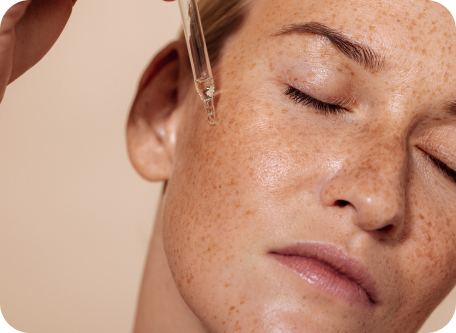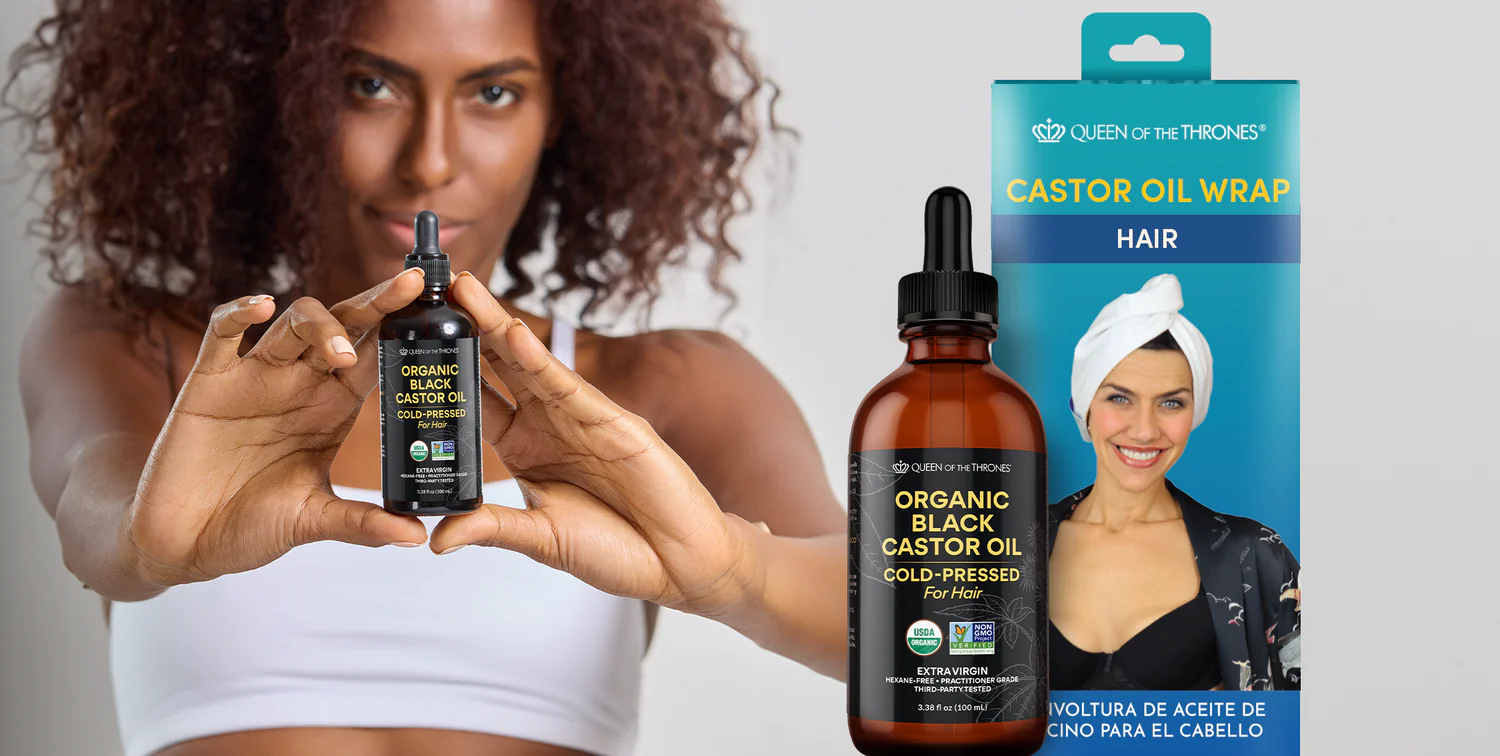
Ground & Balance Your Chakras with Castor Oil Packs
Ever catch yourself stressing over your body? Whether it's the cellulite, that little pooch you can't seem to shake, hair that never looks quite right, or skin that feels like...
Explore our premium, organic Castor Oil products formulated
for ultimate self-care, beauty, and wellness.

Hair Care

Skin Care

Wellness

Queen of the Thrones® Castor Oil adheres to EWG’s stringent standards for health, safety and transparency ensuring it’s free from harmful chemicals and fully supports clean, conscious beauty.

Our Castor Oil is certified to be grown and processed without synthetic chemicals, pesticides, or GMOs, ensuring the highest purity and sustainability for clean, natural beauty and wellness.

Our Castor Oil is rigorously third-party tested, certified vegan, Non-GMO Project Verified and always bottled in glass to ensure only the highest quality oil for you and your family’s self-care needs.

Queen of the Thrones® Castor Oil Packs are designed by a naturopathic doctor and crafted with care in North America.


Ever catch yourself stressing over your body? Whether it's the cellulite, that little pooch you can't seem to shake, hair that never looks quite right, or skin that feels like...

As the fresh scent of spring fills the air, it’s not just the flowers and trees that are waking up—it's your opportunity for a fresh start, too. Spring is the...

When you think of hair oiling, do you imagine quick fixes or a deeper connection to a centuries-old tradition? What if your hair care routine could be more than just...

Your Guide to Feeling Energized & Balanced Your navel may not be the first thing you think about when it comes to self-care, but it's a powerful energy center in...
Join our community for tips, how-to’s, inspiration, and exclusive
updates on all things Queen of the Thrones®
Would you love to be the first to hear about VIP sales, product updates and launches? Subscribe to get exclusive offers, free DIY recipes, and much more!